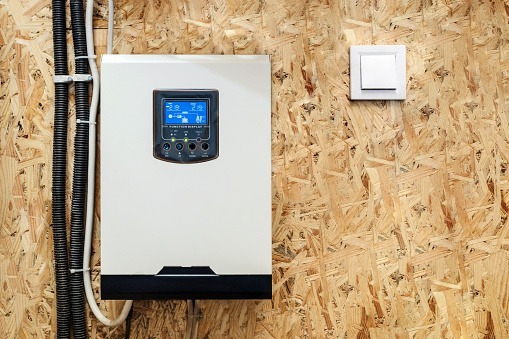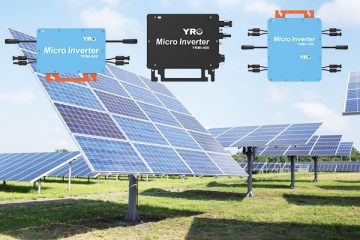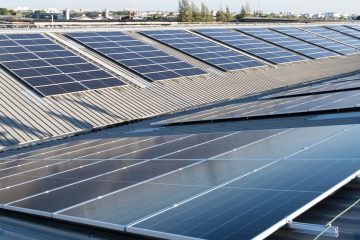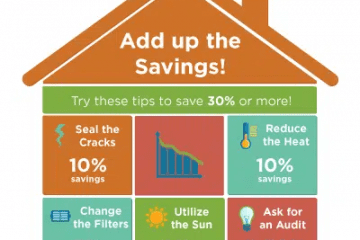As solar energy continues to gain traction as a sustainable and cost-effective energy source in Nigeria, making the right decisions about the components of your solar system is essential. Among these components, the solar inverter stands out as a critical piece of the puzzle. It’s the heart of your solar setup, converting the sun’s energy into usable power for your home. However, choosing the right solar inverter can be challenging if you’re unfamiliar with the various types, capacities, and functionalities available.
At Just HardRich Global Resources Limited, Nigeria’s choicest Electrical Power and Control Engineering Company, we’re committed to helping you make informed decisions that ensure your solar system is both reliable and efficient. This guide will break down the essential details you need to know when selecting a solar inverter for your home.
What is the Purpose of the Inverter?
Solar panels, or photovoltaic (PV) modules, capture sunlight and convert it into direct current (DC) electricity. However, most homes and appliances operate on alternating current (AC) electricity. This is where the solar inverter steps in.
A solar inverter converts the DC power generated by your panels into AC power, making it compatible with your home’s electrical system. But the inverter’s job doesn’t stop there. Modern inverters come with advanced features like:
- Maximum Power Point Tracking (MPPT): This technology ensures your solar panels work at their highest efficiency by adjusting their output to match environmental conditions like sunlight intensity.
- Monitoring Capabilities: Many inverters allow you to track energy production and consumption through apps or online dashboards. This gives you real-time data to optimize your energy usage.
- Safety Features: Inverters often come with systems to detect electrical faults, shut down the system when needed, and protect your home from potential hazards.
In essence, the inverter acts as the brain of your solar system, ensuring smooth operation and maximum energy output.
What are the Different Types of Inverters?
Choosing the right inverter begins with understanding the various types available and their suitability for different applications.
1. String Inverters
String inverters are the most common type used in residential solar installations. They are designed to handle multiple panels connected in a “string.”
Features:
- They come equipped with MPPT technology to optimize the output of each panel string.
- They are cost-effective, making them an excellent choice for homes with consistent sunlight across all panels.
When to Choose String Inverters:
If your panels are installed in an area with uniform sunlight exposure and minimal shading, string inverters are ideal.
2. Microinverters
Microinverters are installed directly beneath each solar panel, converting DC to AC at the panel level.
Features:
- They allow each panel to operate independently, which is particularly beneficial in installations where shading or varying panel angles could impact performance.
- Microinverters offer detailed monitoring for individual panels, making it easier to identify issues or optimize performance.
When to Choose Microinverters:
If your solar panels are installed in areas prone to shading or have varying orientations, microinverters are the best choice. They ensure that one underperforming panel doesn’t affect the entire system.
3. Hybrid Inverters
Hybrid inverters combine the functions of a solar inverter and a battery inverter into one unit. They manage the flow of energy between solar panels, batteries, and your home.
Features:
- They allow for energy storage, enabling you to use solar power even at night or during outages.
- Many hybrid inverters come with advanced features like load prioritization and time-of-use optimization.
When to Choose Hybrid Inverters:
If you’re looking for a future-proof system that can integrate batteries later or if you live in an area with frequent power outages, hybrid inverters are your go-to solution.
4. Off-Grid Inverters
Off-grid inverters are designed for homes that aren’t connected to the national grid.
Features:
- They manage energy storage and ensure a continuous power supply using batteries.
- Off-grid inverters often include advanced functionalities like generator integration for added reliability.
When to Choose Off-Grid Inverters:
If your home is in a remote location with little to no access to the utility grid, off-grid inverters are essential for energy independence.
How to Decide Solar Inverter Capacity for Your Home
One of the most critical aspects of choosing a solar inverter is determining the appropriate capacity. This involves several considerations:
- Energy Needs: Calculate the total energy consumption of your home. This includes all appliances and devices you intend to power with your solar system.
- Solar Panel Output: Ensure that the inverter’s capacity matches or exceeds the output of your solar panels. The ideal DC-to-AC ratio typically falls between 1.0 and 1.3 for optimal performance.
- Future Expansion: Consider whether you might add more panels or energy storage in the future, and choose an inverter that can accommodate these upgrades.
At Just HardRich Global Resources Limited, we guide our clients through these calculations to ensure they choose an inverter that perfectly suits their needs.
How Do You Choose an Inverter for Your Home?
When selecting a solar inverter, consider the following factors:
- Efficiency: Look for inverters with high efficiency ratings to maximize energy conversion.
- Warranty: A longer warranty period is a good indicator of the inverter’s reliability.
- Compatibility: Ensure the inverter is compatible with your solar panels and battery system.
- Monitoring Capabilities: Opt for an inverter with real-time monitoring features to track system performance.
- Brand Reputation: Choose inverters from reputable manufacturers with proven track records.
At Just HardRich Global Resources Limited, we work exclusively with trusted inverter brands known for their durability and performance in Nigeria’s unique environment.
Solar Inverter Troubleshooting and Maintenance
While modern solar inverters are designed for reliability, occasional issues may arise. Regular maintenance can prevent most problems and ensure long-term performance.
Common Issues:
- Error Codes: Inverters may display error messages when there’s an issue with the system. Refer to the manual or contact a professional.
- Overheating: Ensure the inverter is installed in a well-ventilated area to prevent overheating.
- Reduced Efficiency: Dust and debris on solar panels can affect inverter performance. Regular cleaning is essential.
Maintenance Tips:
- Schedule annual inspections with professionals like those at Just HardRich Global Resources Limited.
- Keep the inverter’s surroundings clean and free from obstructions.
- Monitor the system regularly through the inverter’s app or dashboard.
Why Choose Just HardRich Global Resources Limited?
As Nigeria’s leading Electrical Power and Control Engineering Company, Just HardRich Global Resources Limited offers unmatched expertise in designing, installing, and maintaining solar systems. Our team is dedicated to delivering innovative, reliable, and cost-effective solutions tailored to your specific needs.
When you choose us, you’re not just investing in a solar inverter – you’re investing in a future powered by trust, reliability, and excellence.
Choosing the right solar inverter is crucial for the performance and reliability of your solar system. With the expert guidance of Just HardRich Global Resources Limited, you can rest assured that you’re making the best choice for your home and future.




